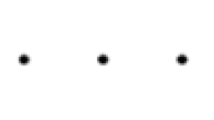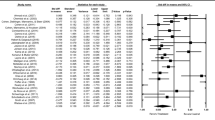Abstract
Posttraumatic stress disorder (PTSD) is a severe mental disorder that can develop after a traumatic event. PTSD has been reported to be associated with activation of the innate immune system, as measured by increased levels of pro-inflammatory cytokines. While it is well known that PTSD patients display increased levels of interleukin 6 (IL-6) when compared with healthy controls, the relationship between cytokine secretion and treatment outcome has been hardly investigated yet. The aim of this study was to assess the potential association of inflammatory activation and therapy outcome in PTSD. Before therapeutic intervention, we applied the Trier Social Stress Test (TSST) as a method to elicit psychosocial stress and an acute inflammatory response. IL-6 levels were measured in blood plasma of PTSD patients at different time points before and after the TSST. Severity of depressive, trauma-related, and somatic symptoms was assessed before and 8 weeks after trauma-focused treatment in a multimodal day clinic setting. We showed that high reactivity of IL-6 to psychosocial stress at the beginning of the therapy was associated with a negative therapy outcome in PTSD, especially regarding depressive symptoms. This study suggests plasma IL-6 reactivity as a potential molecular marker to predict treatment outcome in PTSD.




Similar content being viewed by others
References
Allen AP, Kennedy PJ, Cryan JF, Dinan TG, Clarke G (2014) Biological and psychological markers of stress in humans: focus on the Trier Social Stress Test. Neurosci Biobehav Rev 38:94–124
Auphan N, DiDonato JA, Rosette C, Helmberg A, Karin M (1995) Immunosuppression by glucocorticoids: inhibition of NF-kappa B activity through induction of I kappa B synthesis. Science 270:286–290
Banks WA, Farr SA, Morley JE (2002) Entry of blood-borne cytokines into the central nervous system: effects on cognitive processes. NeuroImmunoModulation 10:319–327
Beck AT, Steer RA (1984) Internal consistencies of the original and revised Beck depression inventory. J Clin Psychol 40:1365–1367
Bersani FS, Wolkowitz OM, Milush JM, Sinclair E, Eppling L, Aschbacher K, Lindqvist D, Yehuda R, Flory J, Bierer LM, Matokine I, Abu-Amara D, Reus VI, Coy M, Hough CM, Marmar CR, Mellon SH (2016) A population of atypical CD56(−)CD16(+) natural killer cells is expanded in PTSD and is associated with symptom severity. Brain Behav Immun 56:264–270
Boscarino JA (2004) Posttraumatic stress disorder and physical illness: results from clinical and epidemiologic studies. Ann N Y Acad Sci 1032:141–153
Conte HR, Plutchik R, Picard S, Karasu TB (1991) Can personality traits predict psychotherapy outcome? Compr Psychiatry 32:66–72
Dantzer R, O’Connor JC, Freund GG, Johnson RW, Kelley KW (2008) From inflammation to sickness and depression: when the immune system subjugates the brain. Nat Rev Neurosci 9:46–56
Dickerson SS, Kemeny ME (2004) Acute stressors and cortisol responses: a theoretical integration and synthesis of laboratory research. Psychol Bull 130:355–391
Dowlati Y, Herrmann N, Swardfager W, Liu H, Sham L, Reim EK, Lanctot KL (2010) A meta-analysis of cytokines in major depression. Biol Psychiatry 67:446–457
Gola H, Engler H, Sommershof A, Adenauer H, Kolassa S, Schedlowski M, Groettrup M, Elbert T, Kolassa IT (2013) Posttraumatic stress disorder is associated with an enhanced spontaneous production of pro-inflammatory cytokines by peripheral blood mononuclear cells. BMC Psychiatry 13:40
Goldsmith J, Scheipl F, Huang L, Wrobel J, Di C, Gellar J, Harezlak J, McLean MW, Swihart B, Xiao L, Crainiceanu C, Reiss PT (2019) Refund: regression with Functional Data. R package version 0.1–21. https://CRAN.R-project.org/package=refund
Hastie TJ, Tibshirani RJ (1990) Generalized additive models. Chapman & Hall/CRC, Boston
Hori H, Yoshida F, Itoh M, Lin M, Niwa M, Ino K, Imai R, Ogawa S, Matsui M, Kamo T, Kunugi H, Kim Y (2020) Proinflammatory status-stratified blood transcriptome profiling of civilian women with PTSD. Psychoneuroendocrinology 111:104491
Kimerling R (2004) An investigation of sex differences in nonpsychiatric morbidity associated with posttraumatic stress disorder. J Am Med Womens Assoc 1972(59):43–47
Kirschbaum C, Pirke KM, Hellhammer DH (1993) The Trier Social Stress Test—a tool for investigating psychobiological stress responses in a laboratory setting. Neuropsychobiology 28:76–81
Koenen KC, Ratanatharathorn A, Ng L, McLaughlin KA, Bromet EJ, Stein DJ, Karam EG, Meron Ruscio A, Benjet C, Scott K, Atwoli L, Petukhova M, Lim CCW, Aguilar-Gaxiola S, Al-Hamzawi A, Alonso J, Bunting B, Ciutan M, de Girolamo G, Degenhardt L, Gureje O, Haro JM, Huang Y, Kawakami N, Lee S, Navarro-Mateu F, Pennell BE, Piazza M, Sampson N, Ten Have M, Torres Y, Viana MC, Williams D, Xavier M, Kessler RC (2017) Posttraumatic stress disorder in the World Mental Health Surveys. Psychol Med 47:2260–2274
Köhler O, Benros ME, Nordentoft M, Farkouh ME, Iyengar RL, Mors O, Krogh J (2014) Effect of anti-inflammatory treatment on depression, depressive symptoms, and adverse effects: a systematic review and meta-analysis of randomized clinical trials. JAMA Psychiat 71:1381–1391
Köhler CA, Freitas TH, Stubbs B, Maes M, Solmi M, Veronese N, de Andrade NQ, Morris G, Fernandes BS, Brunoni AR, Herrmann N, Raison CL, Miller BJ, Lanctot KL, Carvalho AF (2018) Peripheral alterations in cytokine and chemokine levels after antidepressant drug treatment for major depressive disorder: systematic review and meta-analysis. Mol Neurobiol 55:4195–4206
Kroenke K, Spitzer RL, Williams JB (2002) The PHQ-15: validity of a new measure for evaluating the severity of somatic symptoms. Psychosom Med 64:258–266
Kühn S, Gallinat J (2013) Gray matter correlates of posttraumatic stress disorder: a quantitative meta-analysis. Biol Psychiatry 73:70–74
Kunz-Ebrecht SR, Mohamed-Ali V, Feldman PJ, Kirschbaum C, Steptoe A (2003) Cortisol responses to mild psychological stress are inversely associated with proinflammatory cytokines. Brain Behav Immun 17:373–383
Lambert MJ (2017) Maximizing psychotherapy outcome beyond evidence-based medicine. Psychother Psychosom 86:80–89
Madden KS, Sanders VM, Felten DL (1995) Catecholamine influences and sympathetic neural modulation of immune responsiveness. Annu Rev Pharmacol Toxicol 35:417–448
Marra G, Wood SN (2012) Coverage properties of confidence intervals for generalized additive model components. Scand J Stat 39(1):53–74
McCredie MN, Kurtz JE, Valentine L (2018) Prediction of psychotherapy process and outcome with the Personality Assessment Inventory. Psychiatry Res 269:455–461
Monje ML, Toda H, Palmer TD (2003) Inflammatory blockade restores adult hippocampal neurogenesis. Science 302:1760–1765
Morath J, Gola H, Sommershof A, Hamuni G, Kolassa S, Catani C, Adenauer H, Ruf-Leuschner M, Schauer M, Elbert T, Groettrup M, Kolassa IT (2014) The effect of trauma-focused therapy on the altered T cell distribution in individuals with PTSD: evidence from a randomized controlled trial. J Psychiatr Res 54:1–10
Passos IC, Vasconcelos-Moreno MP, Costa LG, Kunz M, Brietzke E, Quevedo J, Salum G, Magalhaes PV, Kapczinski F, Kauer-Sant’Anna M (2015) Inflammatory markers in post-traumatic stress disorder: a systematic review, meta-analysis, and meta-regression. Lancet Psychiatry 2:1002–1012
Philipps A, Silbermann A, Morawa E, Stemmler M, Erim Y (2019) Effectiveness of a multimodal, day clinic group-based treatment program for trauma-related disorders: differential therapy outcome for complex PTSD vs non-complex trauma-related disorders. Front Psychiatry 10:800
Raison CL, Rutherford RE, Woolwine BJ, Shuo C, Schettler P, Drake DF, Haroon E, Miller AH (2013) A randomized controlled trial of the tumor necrosis factor antagonist infliximab for treatment-resistant depression: the role of baseline inflammatory biomarkers. JAMA Psychiat 70:31–41
R-Core-Team (2020) R: a language and environment for statistical computing. R Foundation for Statistical Computing, Vienna, Austria. https://www.R-project.org/
Ressler KJ, Nemeroff CB (1999) Role of norepinephrine in the pathophysiology and treatment of mood disorders. Biol Psychiatry 46:1219–1233
Rohleder N (2014) Stimulation of systemic low-grade inflammation by psychosocial stress. Psychosom Med 76:181–189
Rohleder N, Joksimovic L, Wolf JM, Kirschbaum C (2004) Hypocortisolism and increased glucocorticoid sensitivity of pro-Inflammatory cytokine production in Bosnian war refugees with posttraumatic stress disorder. Biol Psychiatry 55:745–751
Sack M, Hoffmann A (2001) Interview zur komplexen Posttraumatischen Belastungsstörung (I-kPTBSS). Medizinische Hochschule Hannover, Hannover
Somvanshi PR, Mellon SH, Yehuda R, Flory JD, Makotkine I, Bierer L, Marmar C, Jett M, Doyle FJ 3rd (2020) Role of enhanced glucocorticoid receptor sensitivity in inflammation in PTSD: insights from computational model for circadian-neuroendocrine-immune interactions. Am J Physiol Endocrinol Metab 319:E48–E66
Steptoe A, Hamer M, Chida Y (2007) The effects of acute psychological stress on circulating inflammatory factors in humans: a review and meta-analysis. Brain Behav Immun 21:901–912
Szeszko PR, Lehrner A, Yehuda R (2018) Glucocorticoids and hippocampal structure and function in PTSD. Harv Rev Psychiatry 26:142–157
Tagay S, Erim Y, Stoelk B, Möllering A, Mewes R, Senf W (2007) The Essen Trauma-Inventory (ETI)- A screening instrument of identification of traumatic events and posttraumatic disorders. Zeitschrift Psychotraumatol Psychol Med 1:75–89
Tan KS, Nackley AG, Satterfield K, Maixner W, Diatchenko L, Flood PM (2007) Beta2 adrenergic receptor activation stimulates pro-inflammatory cytokine production in macrophages via PKA- and NF-kappaB-independent mechanisms. Cell Signal 19:251–260
Ter Heide FJ, Mooren TM, Kleber RJ (2016) Complex PTSD and phased treatment in refugees: a debate piece. Eur J Psychotraumatol 7:28687
Toft H, Bramness JG, Lien L, Abebe DS, Wampold BE, Tilden T, Hestad K, Neupane SP (2018) PTSD patients show increasing cytokine levels during treatment despite reduced psychological distress. Neuropsychiatr Dis Treat 14:2367–2378
Toft H, Lien L, Neupane SP, Abebe DS, Tilden T, Wampold BE, Bramness JG (2020) Cytokine concentrations are related to level of mental distress in inpatients not using anti-inflammatory drugs. Acta Neuropsychiatr 32:23–31
Wood SN (2013) On p-values for smooth components of an extended generalized additive model. Biometrika 100:221–228
Yang JJ, Jiang W (2020) Immune biomarkers alterations in post-traumatic stress disorder: a systematic review and meta-analysis. J Affect Disord 268:39–46
Yehuda R, Daskalakis NP, Desarnaud F, Makotkine I, Lehrner AL, Koch E, Flory JD, Buxbaum JD, Meaney MJ, Bierer LM (2013) Epigenetic biomarkers as predictors and correlates of symptom improvement following psychotherapy in combat veterans with PTSD. Front Psychiatry 4:118
Zhutovsky P, Thomas RM, Olff M, van Rooij SJH, Kennis M, van Wingen GA, Geuze E (2019) Individual prediction of psychotherapy outcome in posttraumatic stress disorder using neuroimaging data. Transl Psychiatry 9:326
Acknowledgements
We thank Dr. Andrea Silbermann for help with the organization of this study, and the staff of the day clinic at the Department of Psychosomatics and Psychotherapy for the help with patient recruitment. Work of Tobias Hepp was supported by Volkswagen Foundation.
Author information
Authors and Affiliations
Corresponding author
Ethics declarations
Conflict of interest
The authors declare no conflict of interests.
Additional information
Publisher's Note
Springer Nature remains neutral with regard to jurisdictional claims in published maps and institutional affiliations.
Rights and permissions
About this article
Cite this article
Rhein, C., Hepp, T., Kraus, O. et al. Interleukin-6 secretion upon acute psychosocial stress as a potential predictor of psychotherapy outcome in posttraumatic stress disorder. J Neural Transm 128, 1301–1310 (2021). https://doi.org/10.1007/s00702-021-02346-8
Received:
Accepted:
Published:
Issue Date:
DOI: https://doi.org/10.1007/s00702-021-02346-8




